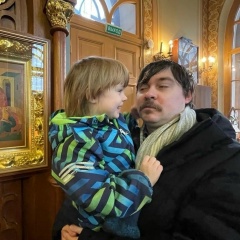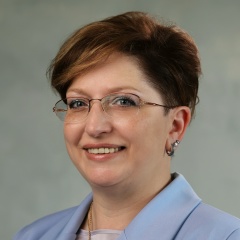Молитвы к святым у евреев:
"Обычай этот выводится из талмудического источника, повествующего о том, как Калев сумел избежать участия в заговоре разведчиков, посланных в Эрец Исраэль. В Писании сказано: «И поднялись они (разведчики) из Негева и дошел до Хеврона» (Бемидбар 13:22). Почему вдруг после множественного числа употребляется единственное? Должно быть написано: «...и дошли до Хеврона»? Глагол в единственном числе, объясняет Раба, указывает на то, что Калев отделился от группы и один отправился к пещере Махпела (рядом с Хевроном, где похоронены праотцы и праматери еврейского народа). Там он обратился к святым предкам со следующей молитвой: «О, праотцы и праматери наши! Просите Б-га, чтобы помог Он мне устоять перед вероломством предателей.»
Похожие истории содержатся в Талмуде, Мидраше, Зоаре, а также в произведениях Аризаля. В одной из них рассказывается о рабби Иеошуа, который отправился на могилу Бет Шамая и пал перед ней ниц, заклиная: «Ответьте мне, кости Бет Шамая...». Другая история повествует о Шмуэле, отцу которого были доверены деньги, предназначенные для сирот. Отец неожиданно умер, и Шмуэль не успел выяснить у него, где находятся эти деньги. Тогда он отправился на кладбище и воззвал к духу своего отца, и узнал у него все, что было необходимо. Известен также эпизод с Йосефом. Когда караван, который вез его в Египет, проходил мимо могилы Рахели, Иосеф вырвался из рук стражников, подбежал к могиле и, прижавшись к надгробию, запричитал: «Мать моя, ты дала мне жизнь! Встань, прошу тебя, и взгляни на сына своего, которого продали в рабство!» Наконец, Аризаль часто посылал своих учеников к могилам танаев и амораев, чтобы они простерлись на могильных плитах и во имя усопших праведников просили Ашема раскрыть перед ними тайны Торы."
Отсюда: http://www.istok.ru/library/income/naslednyi-udel/naslednyi-udel_5800.html
"Обычай этот выводится из талмудического источника, повествующего о том, как Калев сумел избежать участия в заговоре разведчиков, посланных в Эрец Исраэль. В Писании сказано: «И поднялись они (разведчики) из Негева и дошел до Хеврона» (Бемидбар 13:22). Почему вдруг после множественного числа употребляется единственное? Должно быть написано: «...и дошли до Хеврона»? Глагол в единственном числе, объясняет Раба, указывает на то, что Калев отделился от группы и один отправился к пещере Махпела (рядом с Хевроном, где похоронены праотцы и праматери еврейского народа). Там он обратился к святым предкам со следующей молитвой: «О, праотцы и праматери наши! Просите Б-га, чтобы помог Он мне устоять перед вероломством предателей.»
Похожие истории содержатся в Талмуде, Мидраше, Зоаре, а также в произведениях Аризаля. В одной из них рассказывается о рабби Иеошуа, который отправился на могилу Бет Шамая и пал перед ней ниц, заклиная: «Ответьте мне, кости Бет Шамая...». Другая история повествует о Шмуэле, отцу которого были доверены деньги, предназначенные для сирот. Отец неожиданно умер, и Шмуэль не успел выяснить у него, где находятся эти деньги. Тогда он отправился на кладбище и воззвал к духу своего отца, и узнал у него все, что было необходимо. Известен также эпизод с Йосефом. Когда караван, который вез его в Египет, проходил мимо могилы Рахели, Иосеф вырвался из рук стражников, подбежал к могиле и, прижавшись к надгробию, запричитал: «Мать моя, ты дала мне жизнь! Встань, прошу тебя, и взгляни на сына своего, которого продали в рабство!» Наконец, Аризаль часто посылал своих учеников к могилам танаев и амораев, чтобы они простерлись на могильных плитах и во имя усопших праведников просили Ашема раскрыть перед ними тайны Торы."
Отсюда: http://www.istok.ru/library/income/naslednyi-udel/naslednyi-udel_5800.html
Jewish prayers for saints:
“This custom is derived from a Talmudic source telling about how Kalev managed to avoid the participation of scouts sent to Eretz Yisrael. The Scripture says:“ And they (scouts) rose from the Negev and reached Hebron ”(Bemidbar 13:22) Why is it that the singular is used after the plural? Should it be written: “... and they have reached Hebron?” The verb in the singular, explains Rab, indicates that Kalev separated from the group and went alone to the cave of Machpela (near Hebron where the forefathers and foremothers of Heb are buried . Yskogo people), where he appealed to the holy fathers with the following prayer: "Oh, the forefathers and foremothers of our Ask Gd to help me he resist the perfidy of traitors."
Similar stories are found in the Talmud, Midrash, The Zohar, as well as in the works of Arizal. One of them tells of Rabbi Yehoshua, who went to the grave of Beth Shamai and prostrated himself in front of her, conjuring: "Answer me, the bones of Beth Shamai ...". Another story tells of Shmuel, whose father was entrusted with money intended for orphans. Father died unexpectedly, and Shmuel did not have time to find out from him where this money is. Then he went to the cemetery and appealed to the spirit of his father, and learned from him everything that was necessary. The episode with Yosef is also known. When the caravan that drove him to Egypt passed Rachel’s grave, Yosef broke out of the hands of the guards, ran to the grave and, clinging to the tombstone, cried out: “My mother, you gave me life! Rise, I ask you, and look at your son, whom you sold as slavery! ” Finally, Arizal often sent his disciples to the graves of the Tanais and Amorans to prostrate themselves on the gravestones and, in the name of the deceased righteous, asked Ash to reveal the secrets of the Torah to them. "
From here: http://www.istok.ru/library/income/naslednyi-udel/naslednyi-udel_5800.html
“This custom is derived from a Talmudic source telling about how Kalev managed to avoid the participation of scouts sent to Eretz Yisrael. The Scripture says:“ And they (scouts) rose from the Negev and reached Hebron ”(Bemidbar 13:22) Why is it that the singular is used after the plural? Should it be written: “... and they have reached Hebron?” The verb in the singular, explains Rab, indicates that Kalev separated from the group and went alone to the cave of Machpela (near Hebron where the forefathers and foremothers of Heb are buried . Yskogo people), where he appealed to the holy fathers with the following prayer: "Oh, the forefathers and foremothers of our Ask Gd to help me he resist the perfidy of traitors."
Similar stories are found in the Talmud, Midrash, The Zohar, as well as in the works of Arizal. One of them tells of Rabbi Yehoshua, who went to the grave of Beth Shamai and prostrated himself in front of her, conjuring: "Answer me, the bones of Beth Shamai ...". Another story tells of Shmuel, whose father was entrusted with money intended for orphans. Father died unexpectedly, and Shmuel did not have time to find out from him where this money is. Then he went to the cemetery and appealed to the spirit of his father, and learned from him everything that was necessary. The episode with Yosef is also known. When the caravan that drove him to Egypt passed Rachel’s grave, Yosef broke out of the hands of the guards, ran to the grave and, clinging to the tombstone, cried out: “My mother, you gave me life! Rise, I ask you, and look at your son, whom you sold as slavery! ” Finally, Arizal often sent his disciples to the graves of the Tanais and Amorans to prostrate themselves on the gravestones and, in the name of the deceased righteous, asked Ash to reveal the secrets of the Torah to them. "
From here: http://www.istok.ru/library/income/naslednyi-udel/naslednyi-udel_5800.html
У записи 2 лайков,
0 репостов.
0 репостов.
Эту запись оставил(а) на своей стене Виктор Петров




















![Стас Однолетков -=[strast]=- Стас Однолетков -=[strast]=-](https://sun9-50.vkuserphoto.ru/s/v1/ig2/BQKIUfD3kthNCNNY9BS69xiPt_GjwVRhAU8D64L6gfeFjcmrTqYrLAC9NKgCppVxwhm79Mi5RypIHhjSHOhQK2uy.jpg?quality=95&crop=347,544,400,400&as=32x32,48x48,72x72,108x108,160x160,240x240,360x360&ava=1&cs=200x200)


